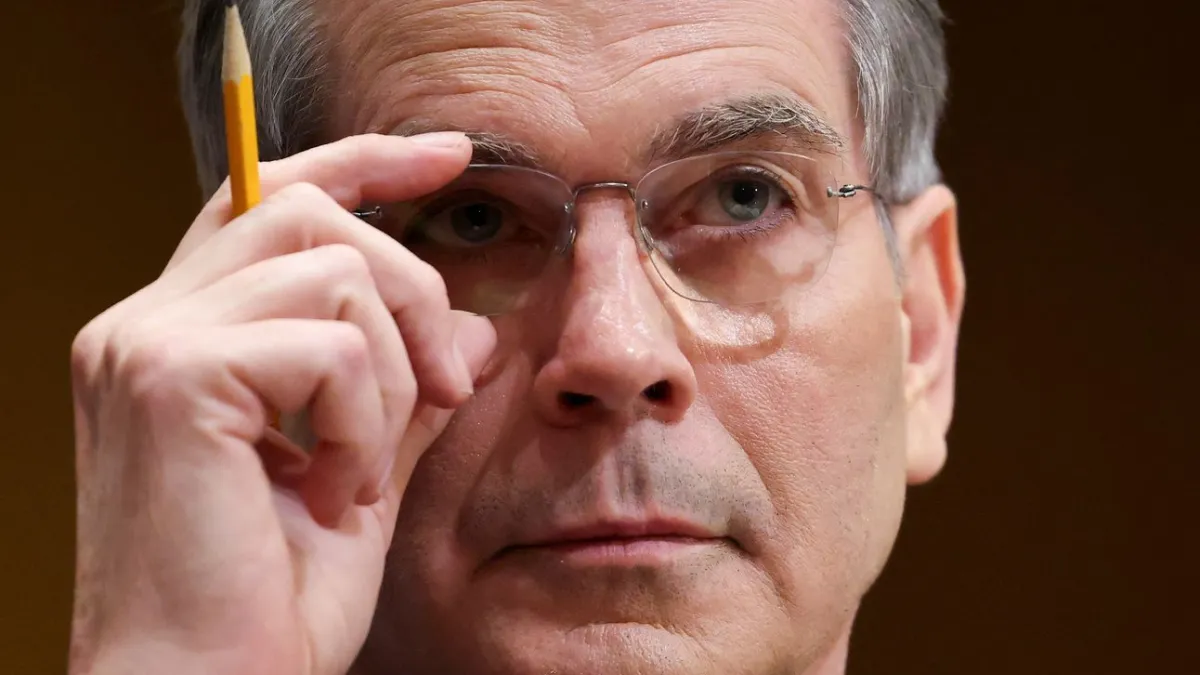
Treasury Secretary Scott Bessent defended President Trump’s tax and trade policies in the face of intense Democratic questions at a Thursday hearing of the Senate Finance Committee, telling lawmakers that the president “is breathing new life into the American economy” by challenging the decades-old status quo in those areas.
Bessent said that the Treasury Department had just concluded “its most successful filing season in years” and did so while cutting costs and making improvements at the IRS. He said tax receipts have defied predictions that DOGE cuts or the perception of reduced IRS enforcement would lead to a sharp decline in revenue. Some of the DOGE staffing cuts were postponed until after the tax-filing season was over.
“Critics of the president’s efforts to modernize the IRS warned that the effort would result in a 10% shortfall in receipts,” Bessent said, repeating points he had made a day earlier before the House Ways and Means Committee. “Instead, the opposite happened. April receipts this year were up 9.5% over the previous year. And receipts in May were up 14.7% over the previous year.” Bessent said those increases happened even as billions of dollars in waste and planned IT spending were cut.
Bessent also defended Trump’s tariffs, claiming that they are not a tax and arguing that the increased cost of the levies does not have to be borne by U.S. consumers. And he pushed back, or tried to, on projections that the GOP tax-and-spending bill will increase the deficit over 10 years. He told lawmakers that he “aggressively” disagrees with the Congressional Budget Office’s projection that the Republican reconciliation bill would add $2.4 trillion to the deficit.
Democratic Sen. Elizabeth Warren pressed Bessent on the cost of the plan. “Every credible, independent expert agrees that Trump and the Republicans’ ‘big, beautiful bill’ would add trillions of dollars to the national debt and would not even come close to paying for itself,” she said, citing the Congressional Budget Office, the Penn-Wharton Budget Model, the Yale Budget Lab, the Tax Foundation and the Committee for a Responsible Federal Budget — as well as Elon Musk and The Wall Street Journal.
She asked if Bessent could point to an independent analysis that shows the bill would reduce the deficit. Bessent pointed to a CBO analysis that said that Trump’s tariffs would raise $2.8 trillion, more than the projected cost of the reconciliation package.
Bessent was asked a similar question on Wednesday at a hearing of the House Ways and Means Committee. “It strikes me that you are hell-bent on ignoring the warnings of any independent expert whose opinions may not serve your goals,” Rep. Mike Thompson of California, top Democrat on the Ways and Means Tax Subcommittee, told Bessent.
In response, Bessent cited Arthur Laffer, a Trumpian economist who served in the Reagan administration and is best known for his theory suggesting that some tax cuts can increase revenue by juicing economic growth. Thompson laughed. “Great, I don’t think that one counts,” he said.